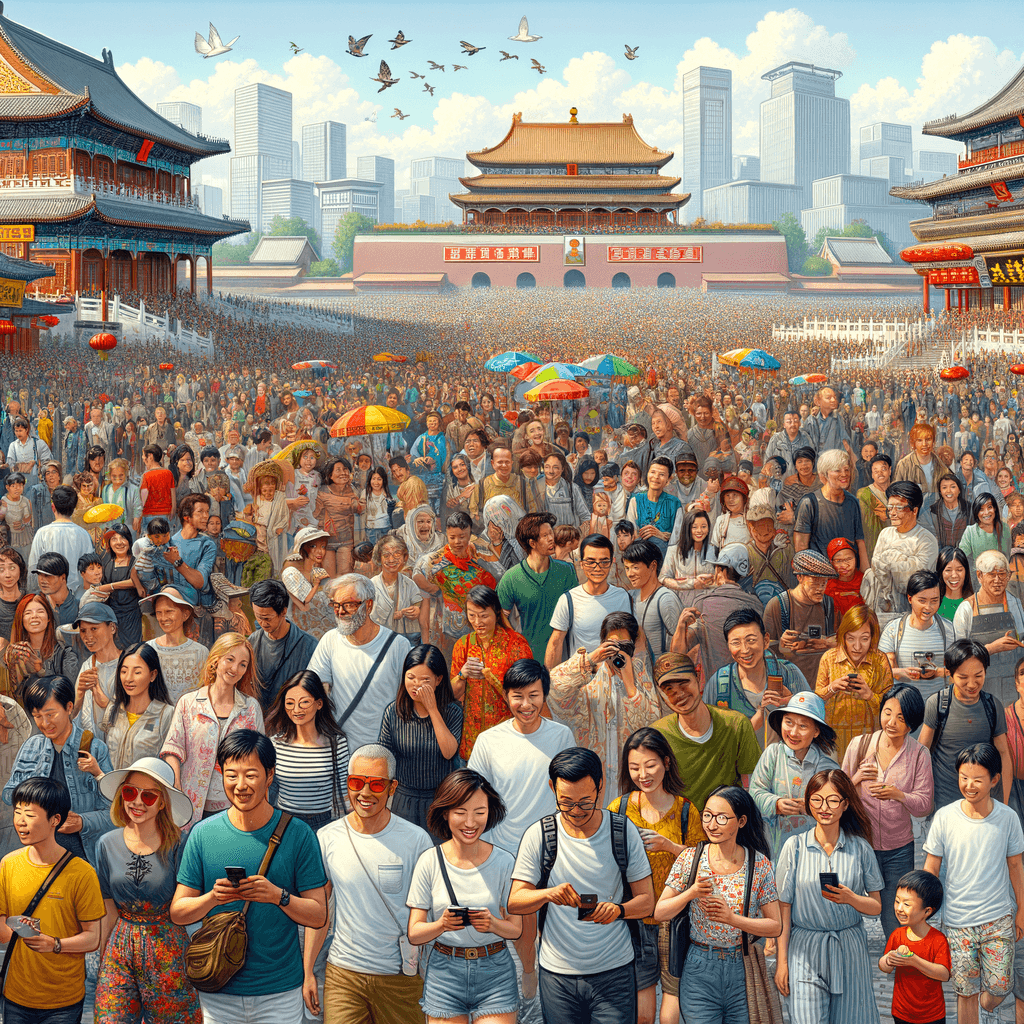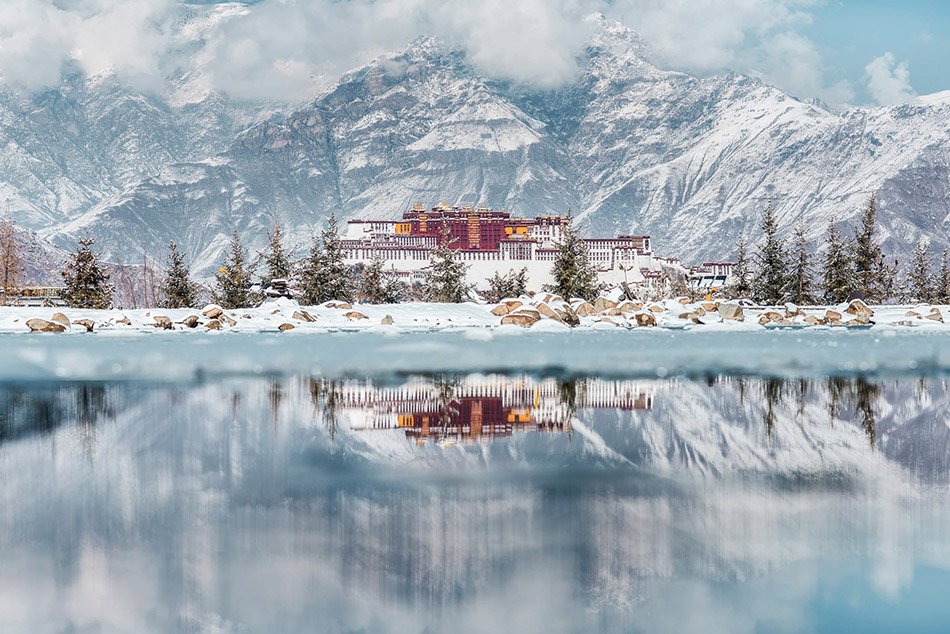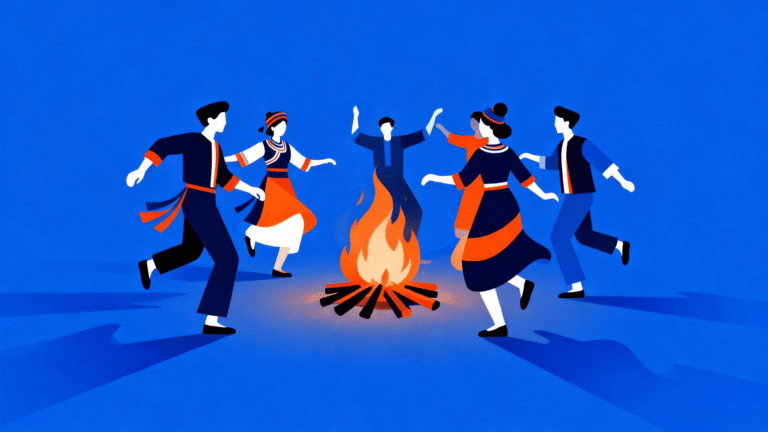The Worst Time to Visit China: What Every Traveler Needs to Know
Planning a trip to China can be a dream come true. However, choosing the wrong time to visit can quickly turn that dream into a challenging experience. China is a vast country with diverse climates and significant cultural events, meaning that certain periods may be less favorable for travel. In this guide, we’ll explore the worst times to visit China, helping you avoid the common pitfalls that could dampen your travel experience.
Table of Contents
Understanding the Seasonal and Cultural Factors
When determining the worst time to visit China, it’s essential to consider both weather patterns and major cultural events. These factors can significantly affect your travel experience, from crowded tourist sites to challenging weather conditions.

1. National Holidays: When the Entire Country is on the Move
China’s national holidays are some of the worst times to travel across the country. These holidays are characterized by massive crowds, higher prices, and congested transportation networks.
Golden Week (October 1-7)
The first week of October marks China’s National Day Holiday, also known as Golden Week. This period is notorious for domestic travel, as millions of Chinese citizens take advantage of the extended holiday to visit popular destinations. Expect long lines, overcrowded attractions, and inflated prices. Places like the Great Wall, the Forbidden City, and major cities like Beijing and Shanghai become nearly impossible to enjoy due to the sheer number of visitors.
Chinese New Year (Late January to February)
The Chinese New Year, based on the lunar calendar, is another peak travel time to avoid. This holiday, also known as the Spring Festival, sees a massive movement of people as families reunite. Trains, buses, and flights are often fully booked weeks in advance, and ticket prices skyrocket. Moreover, many shops and restaurants close during this period, limiting your dining and shopping options.
Labor Day Holiday (May 1-5)
Labor Day is another national holiday that attracts large crowds to tourist sites across the country. Although not as intense as Golden Week or Chinese New Year, it still leads to packed attractions and busy transportation hubs. If you’re planning to visit parts of China’s iconic landmarks, this is another period to avoid.
Weather Considerations: The Worst Seasons to Visit
China’s diverse geography means that the weather can vary dramatically from one region to another. However, certain seasons present challenges that could negatively impact your trip.

2. Summer: The Rainy Season and Overwhelming Heat
Summer, especially from June to August, is the worst time to visit many parts of China due to the rainy season and intense heat. The humidity in cities like Shanghai, Hong Kong, and Guangzhou can be oppressive. Heavy rainfall can lead to flooding, disrupting travel plans and making outdoor activities less enjoyable.
The south of China, including Hong Kong and the Yangtze River region, experiences the most rainfall during this time. Typhoons are also a concern, particularly in coastal areas, which can lead to flight cancellations and dangerous conditions.
3. Winter: Bone-Chilling Cold and Limited Access
While some travelers enjoy winter sports or the serenity of snow-covered landscapes, winter (December to February) can be the worst time to visit certain regions in China. Northern China, including Beijing and Harbin, faces extreme cold with temperatures dropping well below freezing. This harsh weather can make outdoor sightseeing uncomfortable, and snowstorms may disrupt transportation.
In addition, central and southern China often lack adequate heating in buildings, making indoor environments less pleasant. If you’re sensitive to cold or prefer a more temperate climate, winter may not be the best time for your China trip.
Cultural Festivals: Avoiding the Crowds
China’s rich cultural heritage means that festivals are a significant part of life, and while they offer incredible experiences, they also bring large crowds and high demand for accommodations.

4. Mid-Autumn Festival (September/October)
The Mid-Autumn Festival is a time for family reunions and mooncake feasts, celebrated across China. This festival falls on the 15th day of the eighth lunar month, usually in September or October. While it’s a fascinating cultural event, it also leads to crowded parks, temples, and tourist sites as locals celebrate with loved ones. If you prefer a quieter experience, it’s best to avoid this period.
5. Dragon Boat Festival (June)
The Dragon Boat Festival is another vibrant but crowded event, usually occurring in June. This festival is celebrated with dragon boat races, which attract large numbers of spectators, particularly in southern China. Hotels near popular race venues book up quickly, and the increased demand can make your travel experience more hectic than enjoyable.
Regional Considerations: Avoiding the Worst Times in Specific Areas
China’s size means that the best and worst times to visit can vary significantly depending on the region.

6. Tourist Hotspots: The Great Wall and Beyond
If you plan to visit the Great Wall, one of China’s most iconic attractions, avoid national holidays at all costs. The wall becomes exceptionally crowded during these times, making it difficult to appreciate its majesty. Similarly, popular cities like Beijing, Xi’an, and Chengdu see a surge in visitors during peak times, leading to overcrowded sites and longer wait times.
7. Hong Kong: Typhoon Season and Public Holidays
Hong Kong, while a popular travel destination, has its own set of challenges. Typhoon season, from June to September, brings unpredictable weather and the risk of storms. Additionally, Hong Kong’s public holidays, including the Mid-Autumn Festival and National Day, can lead to packed streets and high hotel rates.
Conclusion: Plan Smart, Travel Better
Avoiding the worst times to visit China is key to a more enjoyable and stress-free trip. By steering clear of national holidays, the rainy season, and peak festival times, you can experience China at its best. Whether you’re marveling at the Great Wall or exploring the vibrant streets of Hong Kong, timing your trip wisely ensures you’ll create lasting memories without the crowds and chaos.
For those planning a China trip, remember to research the specific regions you intend to visit and plan around these challenging periods. This way, you can make the most of your travel to China and fully immerse yourself in its rich culture and breathtaking landscapes.







